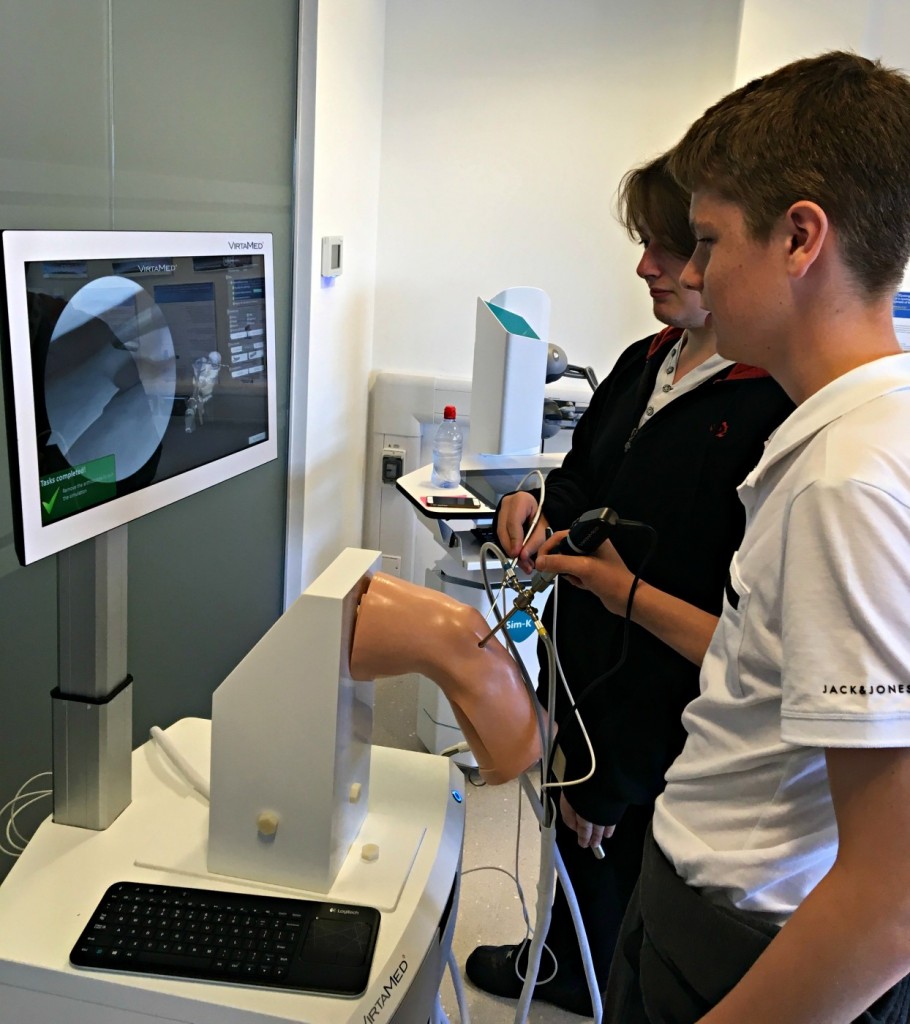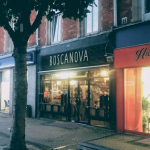Over the past four weeks during our research project at Bournemouth University, we have carried out and participated in numerous tests and activities in the Orthopaedic Research Institute under the supervision of PGR Francesco Ferraro; some of which being more exciting, and others being more interesting.
One the simplest tests that we have carried out for the purpose of the research is the Mini-BESTest, this is a Balance Evaluation Systems Test and requires numerous subsidi ary tests to be carried out for different aspects associated with balance, these include: anticipatory tests (when preparing for something to happen), reactive postural control (how you react to a change in motion), sensory orientation, and dynamic gait speeds (walking speeds and how they change in different circumstances). This was necessary in order to see how the effects of inspiratory muscle training effects balance over the course of 8 weeks.
ary tests to be carried out for different aspects associated with balance, these include: anticipatory tests (when preparing for something to happen), reactive postural control (how you react to a change in motion), sensory orientation, and dynamic gait speeds (walking speeds and how they change in different circumstances). This was necessary in order to see how the effects of inspiratory muscle training effects balance over the course of 8 weeks.
In terms of analysis and methods, one of the most interesting tests for us involved the breathing system and using a spirometer. This device was used to measure the Forced Vital Capacity (total air volume of the lungs), Forced Expiratory Volume (how much air a person can exhale in a forced breath), MIP (maximum pressure generated by inhalation against occluded airway), and the MEP (this is the same but is the pressure generated by exhaling). For us, this was particularly interesting because it allowed us to see how a spirometer works in a hands on experience and how the data is presented and analysed.
Another series of tests involved the PrimusRS, a very impressive machine. It served to be a challenge and required lots of problem solving to carry out the tests successfully. During our use of the PrimusRS we experienced the different processes that were needed to be carried out involving; calibration, setting up, creating templates, correcting motion to improve the results, and the analysis of the final results. This was an extraordinary piece of equipment as it allowed us to carry out endurance and isometric tests (strength tests) for both flexion, extension and rotation regarding the trunk muscles, and gave us different data including power of the muscles/ movement.
Finally, the most exciting and enjoyable session to carry out involved using Virtual Reality Simulators for knee arthroscopy (operations) that surgeons all over the world travel to see. The reason for this being the most enjoyable test/session was due to complexity behind machines that looked so simple, and it allowed us to carry out practise operations teaching you the motions and procedures that would be used in real life. Other fascinating features of the virtual simulator was the way in which it introduced us to the different textures of the bone structures and tissues by giving feedback involving vibrations and stiffness of the simulator drill/ saw as well as the screen display.
As well as all of these above tests, we also are aware of the protocols and ethics of the tests that we have carried out in the duration of the project, this allowed us to experience and build up our own picture of the research that needs to be carried out before conducting the actual investigation.
- Freddie and Jamie
 My personal experience at Café Scientific
My personal experience at Café Scientific










 BU attendance at third annual GCPHR meeting in June
BU attendance at third annual GCPHR meeting in June Interactive Tangible and Intangible Heritage Applications – BU student work featured in new book chapter
Interactive Tangible and Intangible Heritage Applications – BU student work featured in new book chapter Second NIHR MIHERC meeting in Bournemouth this week
Second NIHR MIHERC meeting in Bournemouth this week MSCA Postdoctoral Fellowships 2025 Call
MSCA Postdoctoral Fellowships 2025 Call ERC Advanced Grant 2025 Webinar
ERC Advanced Grant 2025 Webinar Horizon Europe Work Programme 2025 Published
Horizon Europe Work Programme 2025 Published Horizon Europe 2025 Work Programme pre-Published
Horizon Europe 2025 Work Programme pre-Published Update on UKRO services
Update on UKRO services European research project exploring use of ‘virtual twins’ to better manage metabolic associated fatty liver disease
European research project exploring use of ‘virtual twins’ to better manage metabolic associated fatty liver disease